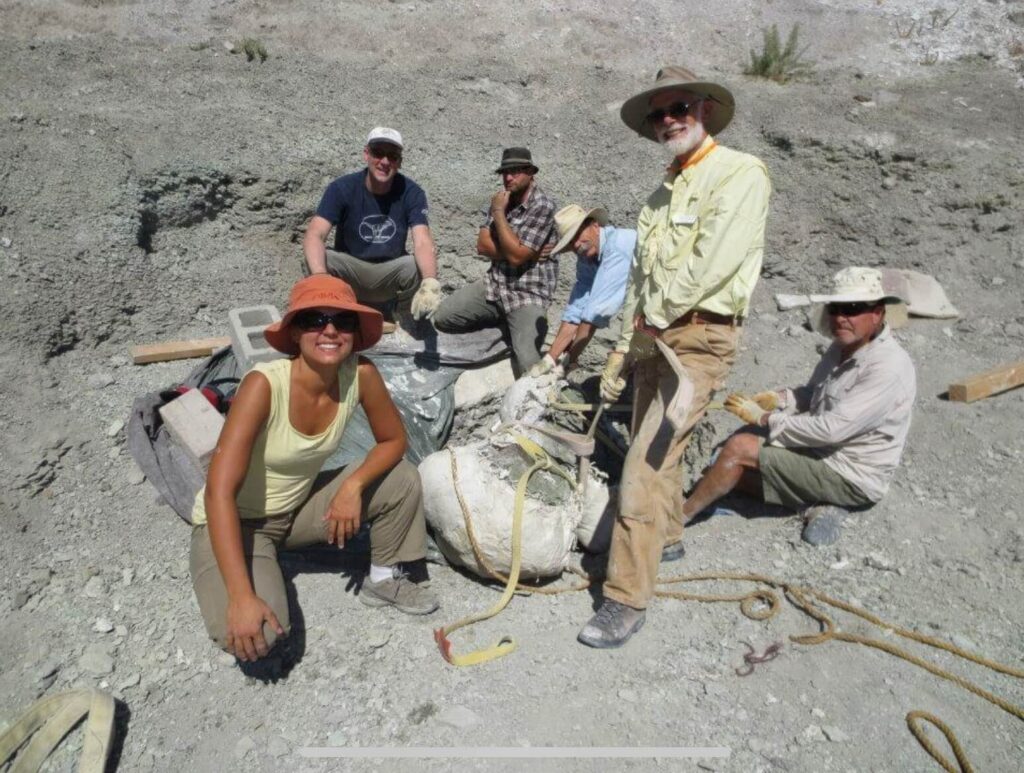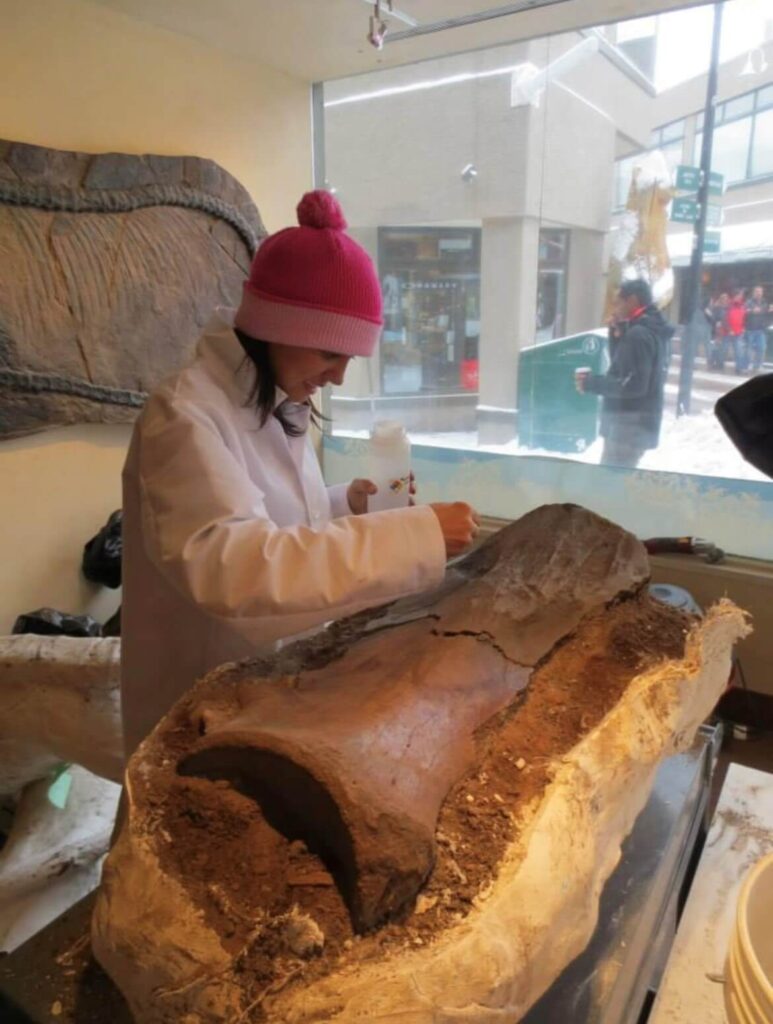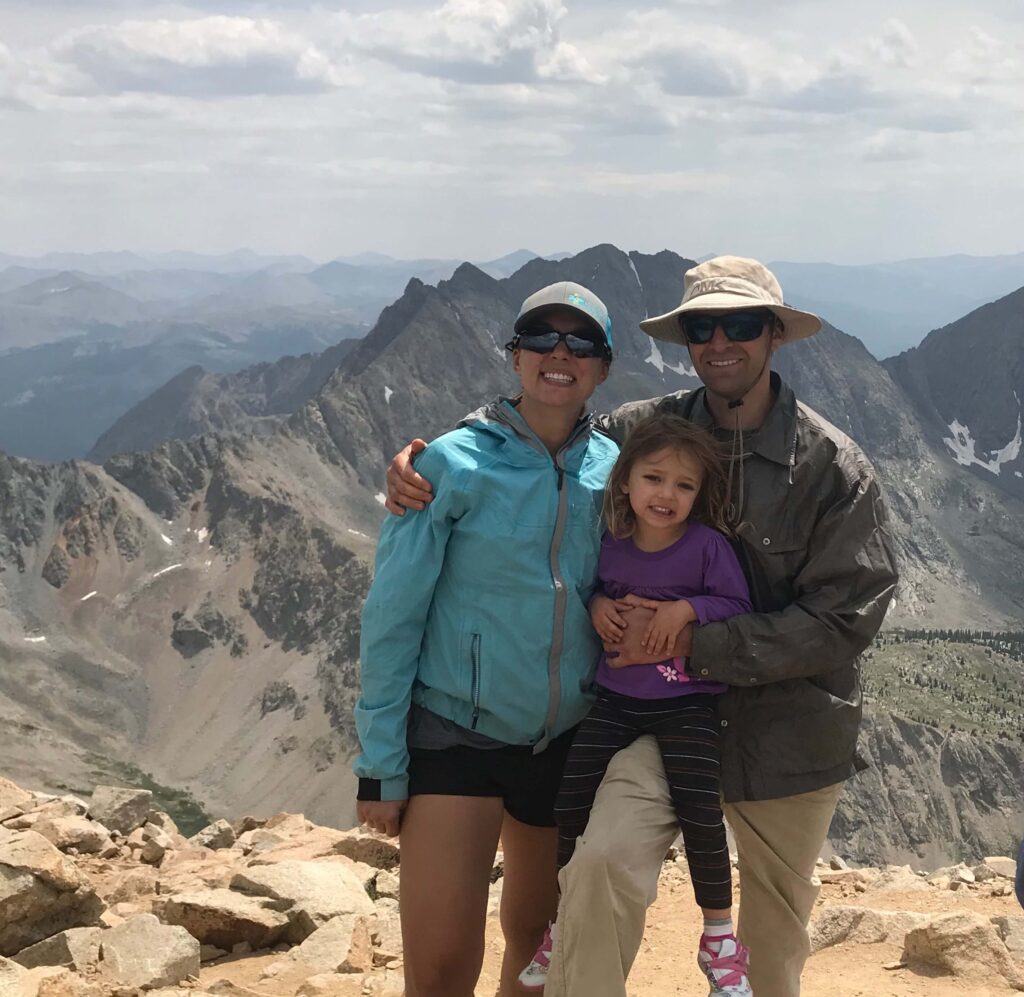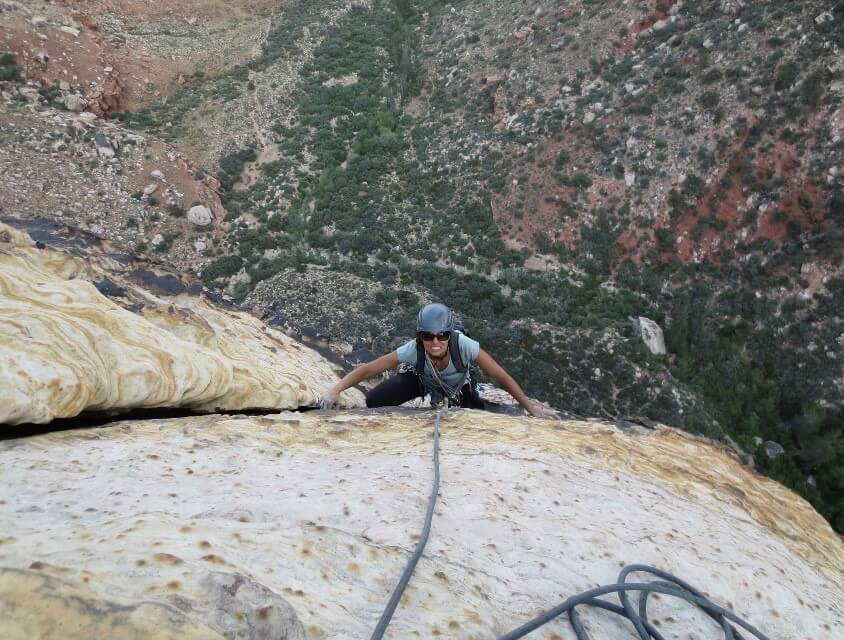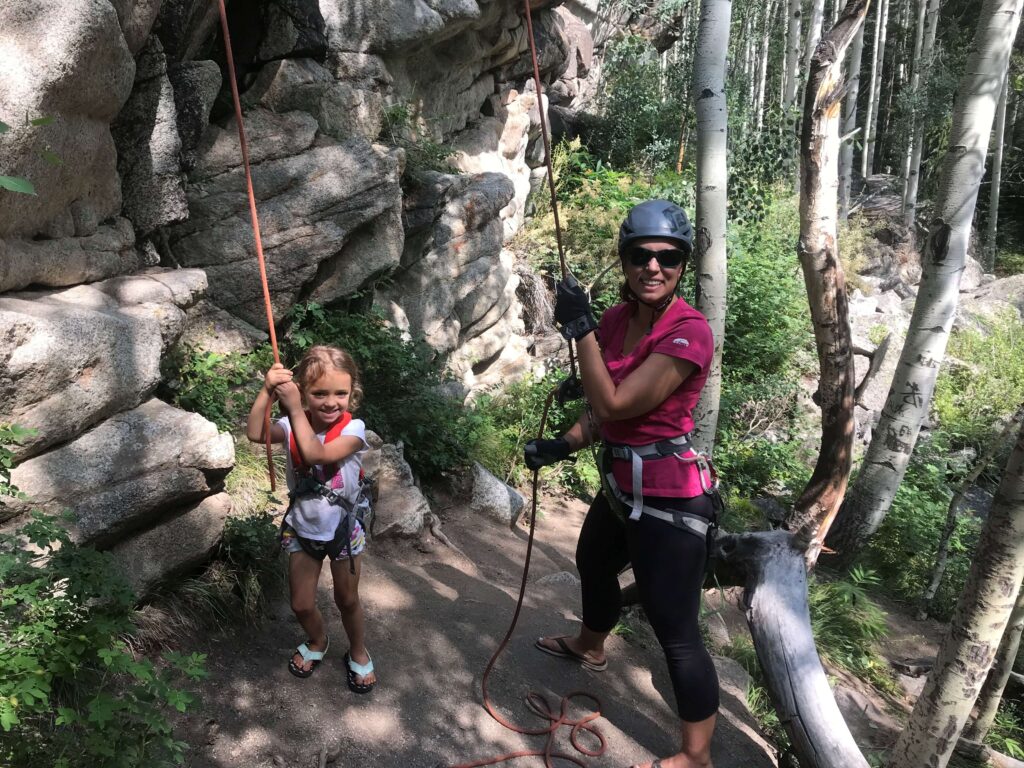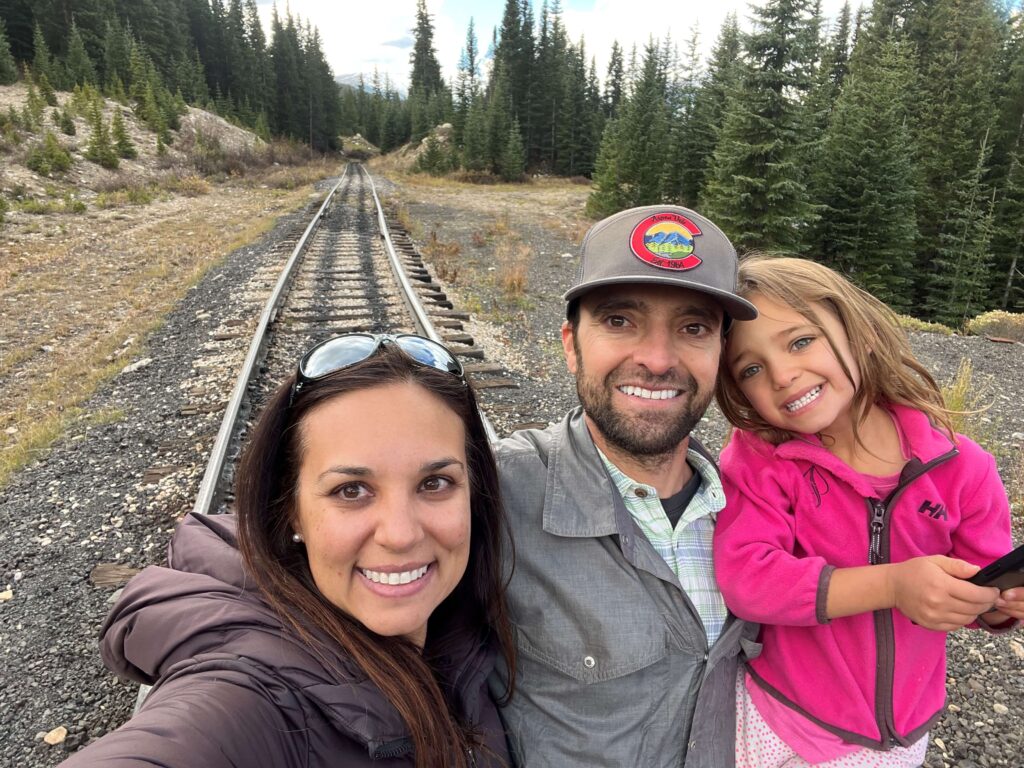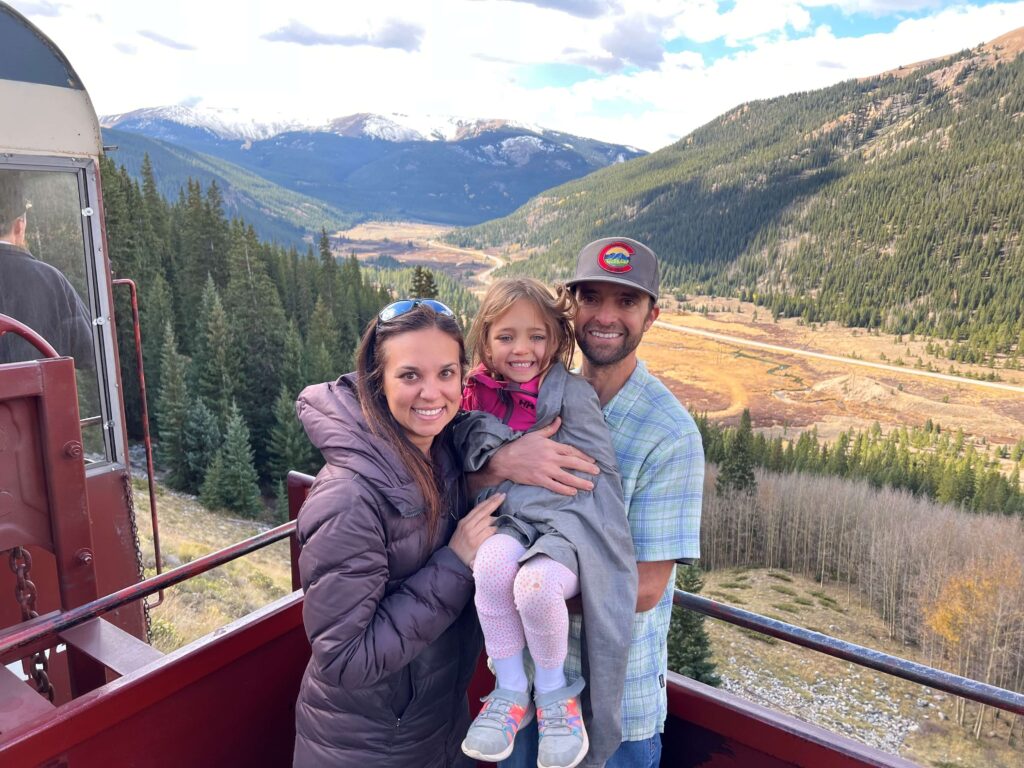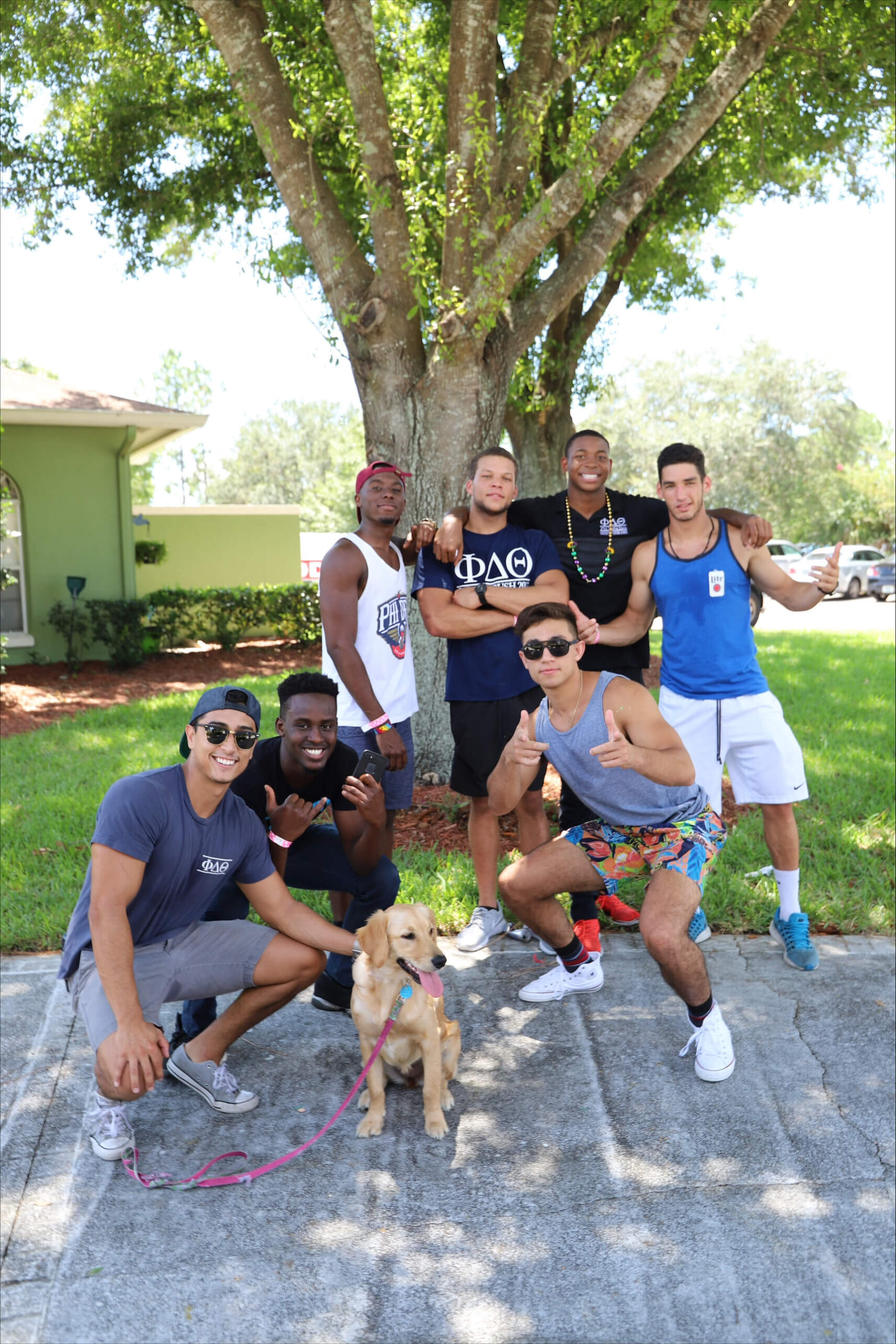Climbing the Mountain: How Andrea Shaffran ’05 is Making Her Dreams Come True
Andrea Shaffran, the executive assistant to eight executives in the Aspen Valley Hospital District in Colorado, recently received the 2023 American Society of Administrative Professionals Impact Award. The annual award recognizes and honors administrative professionals who have successfully completed innovative projects for their organizations.

Her present role, which also includes serving as district secretary to the Aspen Valley Hospital District Board of Directors, and as the election official for the Aspen Valley Hospital Special District, was not something she envisioned when she attended UCF. However, her passions lay between business and medicine, and over the years, she has found the perfect career that allows her to use her strengths from both interests.
“I’ve always been drawn to making an impact,” Shaffran says. “When I was at UCF, I received a scholarship and just loved that the university reinforced its dedication in acknowledging hard work and fostering academic excellence.” She is currently studying for her MBA to continue her own quest for excellence.
“UCF really allowed me to find the perfect career path.”
Shaffran grew up in Fort Pierce, a city on Florida’s east coast. She loved the beach, and although she took family trips to the mountains and learned how to snow ski, she never wanted to move to where it was cold.
In January, the National Weather Service recorded a temperature of -19 degrees for Denver International Airport. No big deal for Shaffran, who has embraced the Centennial State and all its snow since moving there 18 years ago.
After graduating from UCF, Shaffran wanted to see where life would take her. She became interested in Florida’s booming real estate market and became a Realtor. Over the next few years, she became successful at that, and then saw an ad that piqued her interest: “Have you ever dreamed of owning a house in Aspen?”
Until that moment, Shaffran had not. She had skied all over Colorado, but never in Aspen. She needed to check it out. When she visited Aspen later that month, she was amazed by its beauty and felt its pull. When she walked into a local real estate office, she learned that her Florida real estate license had reciprocity.
“My parents raised me to be strong and independent,” Shaffran says. “And I was always extremely adventurous.” Two weeks later, after taking care of things in Florida, she flew back to Colorado, passed the state real estate exam, and got to work.
And when her then-fiancé, now husband, earned his EMT now paramedic certification, Shaffran saw how much he was enjoying helping the community and decided to go back to school for her certification. As part of keeping the certification, Shaffran took continuing-education courses; she found some courses that were normally offered to the community ski patrol (she could take half the required courses in one fell swoop and be re-certified for three years). She was talking with one of her classmates, who was a ski patrol director, and upon learning she was a skier, offered her a job.
“A lot of my jobs have been a result of being in the right place, at the right time, with the necessary skills,” Shaffran says. “But really, once I became a certified EMT, it wasn’t that much of a stretch to think I could be a member of the ski patrol.”
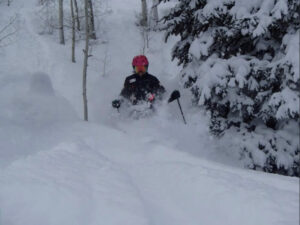
It’s not always the exciting rescues portrayed in the movies, she says. Most of her day-to-day work in ski patrol was responding to calls, skiing the mountains and looking for hazards. “It was an extremely fun job that provided ample exercise and diversity from day to day.”
“We focused on preventing accidents as much as possible,” Shaffran says. “Sometimes, we would get calls for people who had fallen, and then when we get to the area, they have already gotten up and continued on their way. Other incidents would require a lot of people, resources, and equipment.”
Shaffran says the more serious injuries occur in the terrain parks. Buttermilk Ski Mountain, has been the long-term home of the Winter X games. “At times, there is a mix of professional skiers and people who are on vacation and think that maybe, just maybe, they could hit that jump or feature,” Shaffran says. Surprisingly, the most critical injuries occurred in the smaller terrain parks.
Shaffran worked as an accident investigator technician for the Aspen Skiing Company for five years. During that time, she also was an assistant instructor at Colorado Mountain College for the EMT-B course; worked for Jazz Aspen, a jazz festival and fundraiser for Jazz Aspen Snowmass, a nonprofit, charitable organization; and as a certified substitute teacher for the Aspen School District.
“I don’t do well with downtime,” Shaffran says. “I have a deep drive to stay busy and thrive when given opportunities to find improvements and efficiencies.”
The breadth of experiences in her community is directly related to her desire to give back as much as possible. She jumped at the chance to work at Aspen Valley Hospital in 2015. She started out as a unit coordinator for the emergency department and as a receptionist for the same-day surgery department.
One of the things that Shaffran loves about her work at the hospital is the ability to exercise her problem-solving abilities. She realized that there are many moving parts to the hospital, which was perfect for her because of her tendency to get involved. And, as the executive assistant to eight executives in the C-suite, it is part of her job to learn as much as possible about healthcare.
As the district secretary for the Board of Directors and executive assistant, she assists with event planning, scheduling, or on-the-fly requests like purchase orders and check requests. She also runs all the elections associated with the hospital, including hiring and training election judges, hiring a canvas board, designing, and creating the ballots and overseeing the voter registration.
Aspen Valley Hospital is a 25-bed, Critical Access Level III Trauma Center with outpatient service areas located throughout Aspen and the Roaring Fork Valley. They have approximately 550 full-time employees, additional part-time employees, and “travelers” as the need arises.
At Shaffran’s first board meeting as a facilitator, she noticed a troubling trend in one of the surveys that was going to be presented.
“We were coming out of COVID and we had already seen that staff burnout was a problem,” Shaffran recalls. “Staff morale was low, and it was reflected in the survey. We had always ranked in the top 90th percentile or higher for staff morale, and the new numbers were a huge blow.”
Shaffran’s problem-solving skills and innate desire to help kicked in immediately.
“We needed to do something for our staff,” Shaffran recalled.
That feeling was reinforced through various town hall meetings where staff beseeched the leadership for help.
Shaffran was on a mission. She wanted to create a relaxation room for the staff, and she was going to make it happen. It took months for her to get an approval. Her budget? A whopping $300. She was not deterred.
Her wish list included aromatherapy, massage bands, a massage chair and massage guns (handheld devices that provide percussive massage for muscles and have better therapeutic results than typical vibration massagers). She needed furniture, and privacy shades.
Shaffran scoured the basement storage for suitable furnishing and was grateful to the directors and executives who generously donated critical elements for the “Zen Den,” as the hospital’s marketing wizards had named it.
“With my clinical training, I knew that the physical and psychological benefits of massage, aromatherapy and relaxation are immense,” Shaffran says. “I knew that the Zen Den could help increase our staff’s focus, their circulation, and help them reduce their stress, anxiety, depression, frustration and fatigue.”
In short, Shaffran says, the Zen Den would make them happier.
The hospital executives got on board with Shaffran’s enthusiasm and suggested they debut the Zen Den during National Hospital Week in 2022.
“By the end of that first day,” Shaffran says, “Our employees were already enthusiastically petitioning for the Zen Den to become a permanent part of the hospital.”
The space is a small room that was previously used as a waiting room. It was the perfect place for Shaffran’s project. The room operates on a first-come, first-served basis; individuals typically stay for about 15 minutes. Shaffran visits the room each day, sometimes for relaxation, other times to check the supplies. If something is broken – the exercise bands, for example – Shaffran goes up to the physical therapy clinic and cuts off a few lengths of the stretchy bands to replenish.
Last year, Shaffran posted on her social media accounts about the first anniversary of the Zen Den. One of her followers messaged her and told her that she should submit her project to ASAP for consideration for the Impact Award.
“I told my Chief Information Officer about the award, and she encouraged me to apply,” Shaffran says. “And I won!” I couldn’t believe it. They flew me out to Las Vegas, and they paid for my conference and the hotel. There were more than 2,500 people there, from over five continents. It was a lot bigger than I could have ever imagined.”
It is too early in the hospital’s survey cycle to measure whether the Zen Den has made a difference in employee satisfaction, Shaffran says. But she can already tell the positive effect it’s having from the number of employees who use the room, and the comments she hears as she walks down the hospital corridors.
“I just wanted to make a difference,” Shaffran says. “I saw that there was a need, and all I wanted was to make our staff happy. I encourage anybody who is at a manager or director level to realize how important it is to take care of your staff. Your employees are you, and they are the ones that are driving everything in your organization. If you can make them happy and let them know they’re appreciated it goes so far.”
Next on Shaffran’s list: she is on her hospital’s employee housing committee.
“The average price of a house here is $7.6 million,” Shaffran says. “We are looking for ways to provide more affordable housing options for our staff.”
Shaffran also served as the Executive Assistant Peer Network Chair for the WHA. They partner with other rural hospitals in Colorado, Utah, and Michigan to combine resources and talent, to ultimately, help keep healthcare local and sustainable.
“I am grateful to UCF for getting my start in business administration and management,” Shaffran says. “I feel like I’m finally using my degree, and I am definitely where I’m supposed to be right now. I encourage all of my Knight alumni to keep using your passions to achieve your dreams.”
